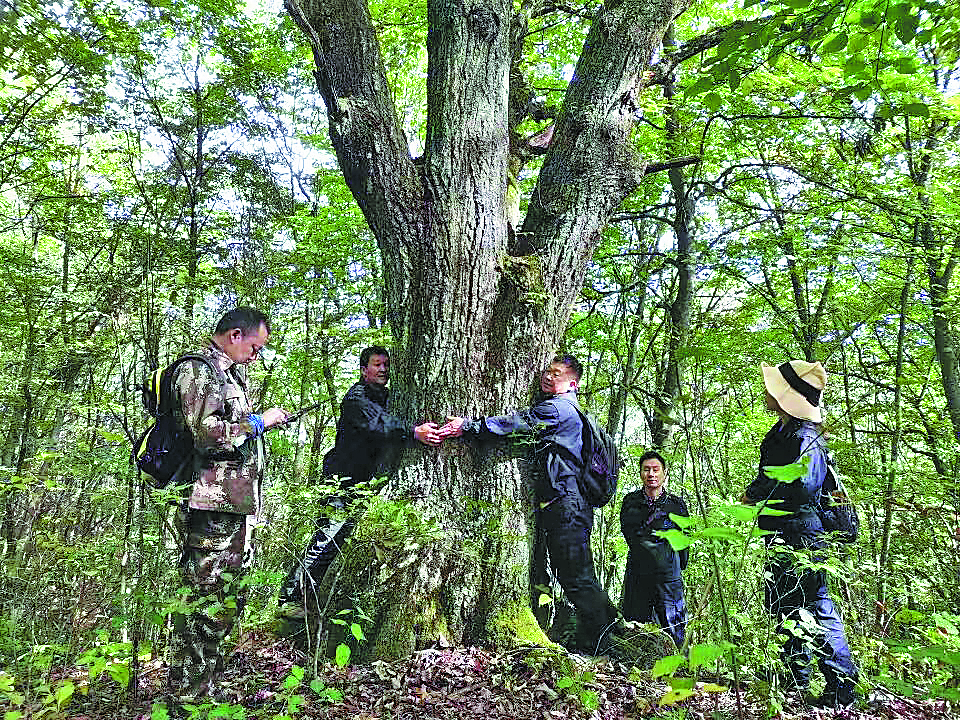Ranger's botanical expertise flowers


The desire to learn those names finally took him into the realm of botany.
In 2005, Wang got the chance to learn to identify plants from a researcher at the Chinese Academy of Sciences during a 15-day training course organized by the reserve.
Between 2008 and 2017, he was transferred to the reserve's scientific research academy, where he participated in scientific surveys as a guide, including a comprehensive three-year survey of the reserve's fauna and flora. As a result, his understanding of the area's plant diversity grew.
In November 2010, Wang met Zhang Shigui, a teacher from Jishou University in Hunan province, who had been invited to help the reserve sort through a collection of around 20,000 unidentified plant specimens, and began to learn with him.
Over the years, Wang has collected many specimens, some for the reserve and some for researchers from other institutions.
"If we find rare species such as Berchemiella wilsonii, which is an extremely rare plant, while on regular patrol, we have to collect a specimen as a record," he explained. "Of course, to discover rare species, you have to know how to identify them first."
Although he was sent to Beijing Zoo to learn to take care of giant pandas for a year in 2015, and then worked as a panda keeper at a scenic area belonging to the reserve for a couple of months, Wang never stopped studying botany.
"As an outside observer, I felt that the decision to send him to care for giant pandas was a little ridiculous," said Du Wei, a botanist at Wuhan University, who was sent to work with the reserve administration for a year as part of a government project in 2014, and met Wang. "But he was amazing. I saw him reading the heavy volumes of The Flora of Hubei."























